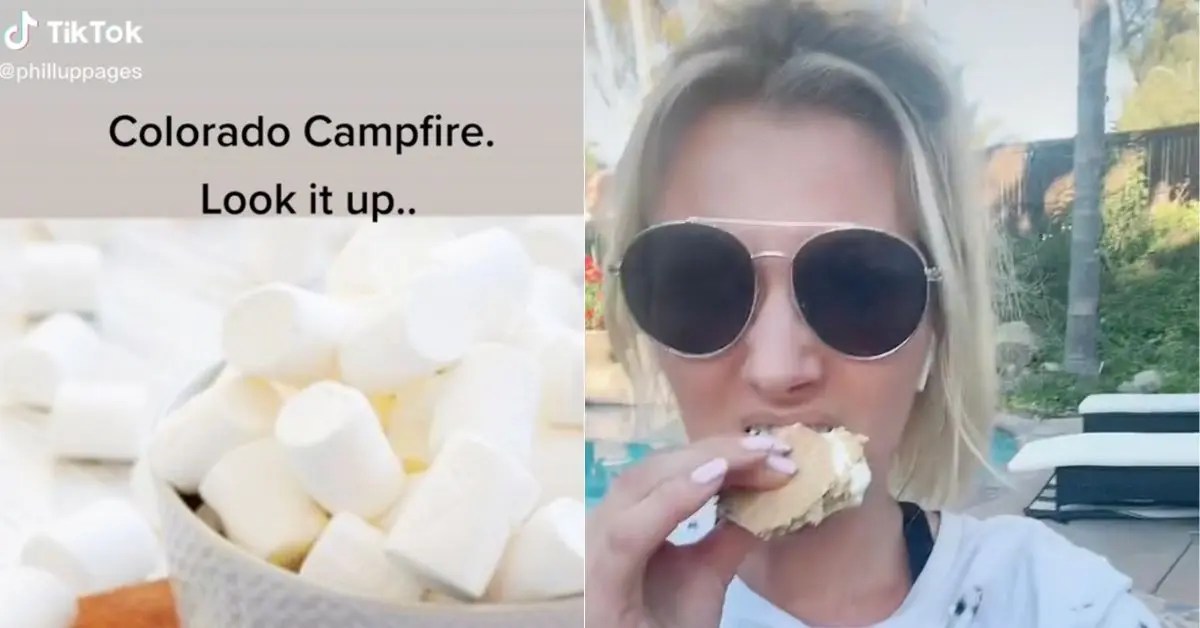Understanding Colorado Campfire Jargon: Immerse Yourself In The Jargon
Colorado campfire slang is a unique linguistic phenomenon that reflects the culture, history, and outdoor lifestyle of Colorado's residents and visitors. This article aims to explore the various terms and phrases that are commonly used around campfires in the Rockies, providing you with an insider's perspective on what these words mean and how they came to be. The rich tapestry of slang not only enhances the camping experience but also fosters a sense of community among campers and outdoor enthusiasts.
Join us as we embark on a journey through the colorful and often humorous world of Colorado campfire slang. We will explore its historical context, provide insights into the most commonly used terms, and discuss how this lingo enhances the camaraderie that comes with sharing stories and experiences around the campfire.
Table of Contents
- The History of Campfire Slang in Colorado
- Common Colorado Campfire Slang Terms
- Cultural Importance of Campfire Slang
- How to Use Campfire Slang
- Common Misconceptions about Campfire Slang
- Resources for Learning More
- Conclusion
- Call to Action
The History of Campfire Slang in Colorado
The origins of Colorado campfire slang can be traced back to the early days of mining and exploration in the region. As settlers, miners, and outdoor enthusiasts gathered around the fire to share stories, a unique vocabulary began to emerge. This jargon was influenced by various factors, including the diverse backgrounds of the people who settled in Colorado and the rich natural environment surrounding them.
Over the years, as hiking, camping, and outdoor recreation became more popular, these terms evolved and adapted to reflect changing cultural norms and interests. The slang serves not only as a means of communication but also as a way to forge connections among people who share a passion for the great outdoors.
Common Colorado Campfire Slang Terms
Understanding the most common terms associated with Colorado campfire slang can significantly enhance your outdoor experience. Below, we explore some of the most frequently used phrases and their meanings.
Food-Related Slang
- S'mores: A classic campfire treat made of graham crackers, marshmallows, and chocolate.
- Trail mix: A popular snack for campers, consisting of nuts, dried fruits, and sometimes chocolate or granola.
- Campfire stew: A hearty meal cooked over the fire, often made with meat, vegetables, and spices.
Activity-Related Slang
- Boondocking: Camping in a remote area without any facilities or established campgrounds.
- Slacklining: A balance sport that involves walking or balancing along a suspended length of flat webbing.
- Backcountry: Areas that are remote and less accessible, often requiring more advanced skills for navigation and camping.
Cultural Importance of Campfire Slang
Campfire slang plays a crucial role in fostering a sense of belonging among campers. Using these terms helps to establish a shared identity and cultural framework, making it easier for individuals to connect with one another. The language also adds a layer of fun and camaraderie to the camping experience, as people use it to share stories, jokes, and experiences.
Furthermore, understanding and using Colorado campfire slang can enhance your overall outdoor experience. It allows you to engage more deeply with your surroundings and the people you meet, creating lasting memories and friendships.
How to Use Campfire Slang
When using campfire slang, context is key. Here are some tips to help you effectively incorporate these terms into your conversations:
- Know your audience: Use slang that is familiar to the people you are camping with to foster connection.
- Be authentic: Don’t force slang into conversations; use it naturally as it fits the context.
- Share stories: Incorporate slang into storytelling to make your experiences more relatable and engaging.
Common Misconceptions about Campfire Slang
While campfire slang can be a fun way to communicate, there are some misconceptions that often arise:
- It’s only for seasoned campers: Anyone can learn and use campfire slang, regardless of their experience level.
- It’s exclusive: The slang is meant to foster inclusivity and connection, not exclusion.
- It’s outdated: Campfire slang continues to evolve, adapting to modern camping culture and trends.
Resources for Learning More
If you’re interested in diving deeper into Colorado campfire slang, consider exploring the following resources:
- Books on outdoor culture and camping etiquette.
- Online forums and communities dedicated to camping and outdoor activities.
- Workshops and classes on camping skills that often incorporate local terminology.
Conclusion
Colorado campfire slang is more than just a collection of terms; it represents a vibrant culture and a shared love for the outdoors. By understanding and using these phrases, you can enhance your camping experience and build connections with fellow adventurers. From food-related terms to activity-based slang, each word adds a layer of richness to the stories shared around the fire.
Call to Action
We encourage you to try using Colorado campfire slang on your next camping trip! Share your experiences in the comments below, or let us know your favorite slang terms. Don’t forget to share this article with fellow outdoor enthusiasts who might find it useful, and check out our other articles for more tips on camping and outdoor adventures!
Thank you for reading, and we hope to see you around the campfire soon!
Cat Vs Dog Debate: The Final Showdown Between Two Beloved Pets
Explore The World Of Fourth Wing Fanart: A Detailed Guide
The Strange Olivia Rodrigo, Delving Into The Meaning And Theme


